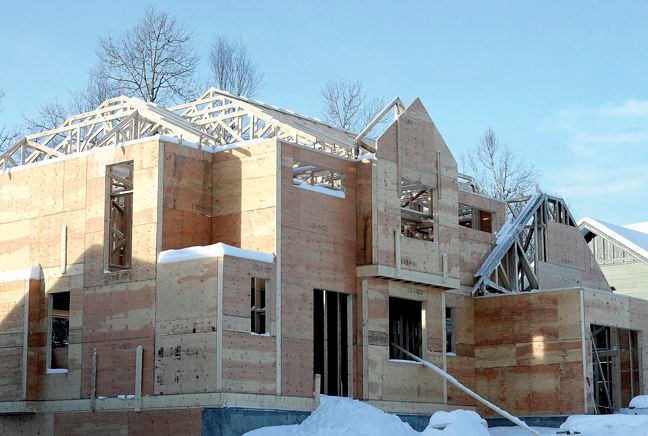In both the federal and provincial budget, our governments have been concerned about the question of affordability.
In particular, the budgets addressed the issue of housing. The federal government is committing billions of dollars over the next 10 years to invest in affordable housing as is the provincial government. The idea is if we increase the supply, we can meet the demand.
It sounds like a good plan but it does beg the question of whether or not subsidized housing is the right choice. Our population will be growing at a rate comparable to the additional units of housing being proposed by the government.
This might lead to a softening of the number of housing starts which would have all sorts of implications for the construction industry. In the end, it might mean the additional housing does not meet the social need for low income units. Rather the additional affordable housing units might be utilized to meet immigration demands leaving us in the same boat we are presently in.
The provincial government is also trying to fight housing speculation through foreign ownership taxes. The legislation was introduced by the B.C. Liberals and the NDP/Green Party government is proposing an expansion to include other areas of the province.
It sounds good. It appears to make sense. After all, having vacant housing units scattered throughout the province has significant impact on communities. Having foreign investors use our housing stock as a form of speculation simply inflates prices without addressing the real critical need for housing.
The tax is a response to the fact the cost of housing in Greater Vancouver, Victoria, and now Kelowna is getting to absurd levels. And when I say absurd, I mean it in the sense of the cost of a typical family dwelling compared to income. Statistics released a few weeks ago tell us the average house in Vancouver now costs 37 times the average annual income of someone living there.
When I bought my house in Prince George in 1995, banks didn't want to lend you more than 2.5 or three times your income. I can't imagine how they are dealing with houses costing 37 times what a person makes.
The root cause isn't really speculation. It is simple market dynamics. When demand outstrips supply, prices go up. Sellers can ask more because there are more people interested in buying. And buyers are desperate to buy before prices get too far out of control.
More importantly, the market is no longer simply a "local market." When buying a house in Vancouver or Prince George or wherever also meant selling house into the same market, there was a certain amount of control on prices. If you asked too much, then people selling their houses couldn't afford to buy yours and vice versa.
With the expansion of markets globally for all sorts of commodities, prices are no longer controlled within the context of one economy. For example, the reason goods manufactured in economically disadvantaged countries are so cheap is not because the costs of materials are so much less. It is because labour is cheap. If those countries are required to pay North American wages, we wouldn't have many of the low costs goods - $5 T-shirts, etc. - we presently have.
At the other extreme, if a 600 square foot apartment costs you $2 million in, say, Hong Kong, then spending $1 million to buy a 1,000 square foot detached house in Vancouver seems perfectly reasonable. Indeed, it sounds like a steal even if you are not going to live in the house.
Governments at all levels and across the country are trying to step into the fray. They are trying to cool our housing market and bring things under control. Unfortunately, their actions may have something of a negative effect.
I say this because who wants the price of their house to actually go down? Whether in real terms - the amount you actually are selling it for this year - or in speculative terms - the assessed value of your home - no one wants to be losing money. Further, there are many home owners who could potentially be underwater if the price of their houses drops too dramatically. Owing more money for a house than you can sell it for is a recipe for economic disaster. This is what we saw just before and after the 2008 crash. It is what is still happening in some American markets and has had a major impact on the rate of economic recovery.
Our governments are caught in the middle. They need to find a way to create affordable places for people to live but also need to do this in a way which doesn't directly affect the wealth of the citizenry.
Not a good time to be in government.



